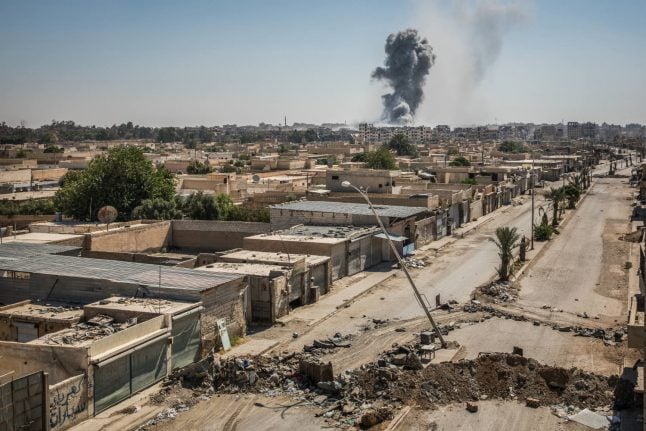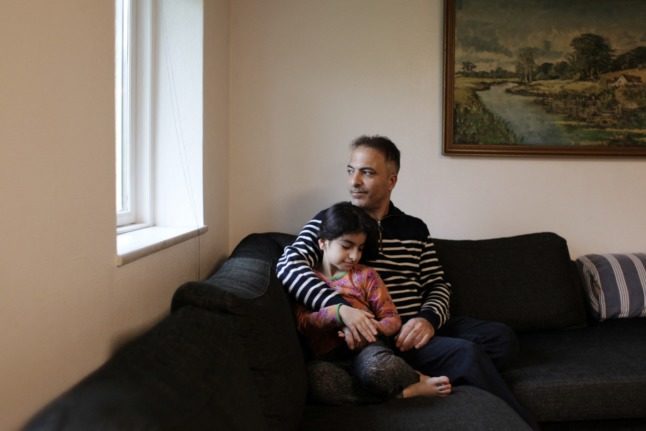His third wife, a German national who gave her name as Leonora, told AFP at a screening centre in the province of Deir Ezzor that Lemke, his second wife and herself fled the fighting together.
“We gave up together,” the 19-year-old said in English, adding that Lemke arrived with her at the centre run by the Syrian Democratic Forces (SDF), the Kurdish-Arab outfit that has spearheaded the fight against IS.
The jihadist group is only hanging on to a tiny rump of its once sprawling “caliphate” and many of its residents are fleeing and turning themselves in before a final offensive.
The SDF separate civilians from suspected active IS members during the screening.
Leonora said Lemke, who is originally from Saxony-Anhalt according to media reports, had a health problem which meant he could not fight and claimed he had worked mostly as a technician for IS.
However investigations published in German newspapers portray Lemke, who is now believed to be 28, as an influential figure among foreign jihadists in Syria.
A report in German newspaper Die Zeit in December 2017 said Lemke arrived in Raqqa, the de facto capital of the jihadist proto-state, in November 2014 and joined the Hisbah (Islamic police).
SEE ALSO: Berlin to fit suspected jihadists with ankle bracelets
He is then believed to have become a member of the feared “Amniyat”, IS's intelligence service.
According to Leonora, they married three days after she arrived in IS-held territory, when she was only 15.
The young woman, who was cradling her two-week-old baby, as she spoke from a windswept SDF screening area near the village of Baghouz, said she hoped to return to her family in Germany.
Lemke's second wife, another German national who said her name was Sabina and aged 34, was less willing to speak but confirmed that she fled the last IS pocket with her husband.
SDF officers on the ground refused to comment on the identities of the suspected jihadists being screened and detained at the centre.



 Please whitelist us to continue reading.
Please whitelist us to continue reading.
Put him against the wall and shoot him.